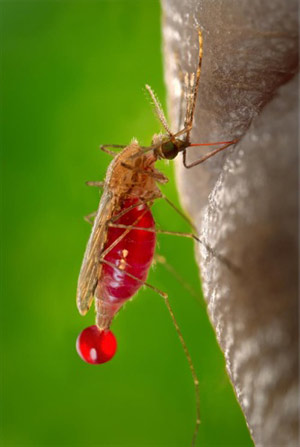
Protease inhibitor-based antiretroviral therapy effectively reduces malaria in HIV-infected children in most sub-Saharan African regions where both HIV and malaria are prevalent. Credit: CDC
New research from Yale University shows that the use of protease inhibitor-based antiretroviral therapy for HIV is an effective measure for reducing malaria in HIV-infected children in most regions of sub-Saharan Africa.
Children with HIV/AIDS in Africa are at a higher-than-average risk for another deadly disease: malaria. But a team of Yale School of Public Health researchers has discovered that people taking certain HIV medications gain an unexpected benefit—protection against malaria infection.
In a recently published paper in the journal AIDS, a team of researchers led by Sunil Parikh, M.D., M.P.H., assistant professor in the Department of Epidemiology of Microbial Diseases, revealed that the use of protease inhibitor-based antiretroviral therapy for HIV is an effective measure for reducing malaria in HIV-infected children in most regions of sub-Saharan Africa, where HIV and malaria are widespread concerns.
Using clinical data from a high transmission area of Uganda, the team modeled the impact of using protease inhibitors on malaria rates under different malaria transmission and HIV prevalence settings. Importantly, their results suggest that the antimalarial benefit of HIV protease inhibitors should extend throughout much of sub-Saharan Africa, and can prevent anywhere from 278 to 1,043 episodes of malaria per 1,000 children each year.
The idea for the research started years ago. Parikh had previously shown that HIV protease inhibitors are able to kill malaria parasites grown in the laboratory, likely due to the similarity in aspartic protease enzymes found in both pathogens. Following up on these laboratory findings, the researchers hypothesized that children who receive protease inhibitor-based antiretroviral therapy would be protected against malaria as well, while treatment with another type of HIV therapy, non-nucleoside reverse transcriptase inhibitor (NNRTI)-based regimens, would not provide the same benefit.
This hypothesis was tested by colleagues in an area of Uganda where HIV and malaria are prevalent, and found an approximately 40 percent reduction in malaria in children who were on HIV protease-inhibitor regimens.
According to Parikh, there is more to the story than the direct antimalarial effects of the HIV drugs. His team has also found that a major reason for the significant anti-malarial protection in HIV patients is due to a beneficial “drug-drug interaction,” between the protease inhibitors and the antimalarial drug, artemether-lumefantrine, the most widely used treatment for malaria in the world.
“This was an exciting translation of bench science to the field, particularly because we could impact two major diseases with the same drug regimen,” Parikh said. The Yale team has now extended these findings by modeling the impact in different endemic settings seen throughout Africa.
The team of researchers from the Yale School of Public Health also included Scott Greenhalgh, Martial Ndeffo, and Alison P. Galvani. The study was funded with a grant from the National Institutes of Health.
Despite significant decreases in malaria due to new antimalarial drugs such as artemether-lumefantrine and widespread use of insecticide-treated bed nets, malaria remains a devastating illness, and HIV-infected children in sub-Saharan Africa are among the hardest hit. “The highest burden of both HIV and malaria are overwhelmingly in sub-Saharan Africa, and HIV-infected children and adults are, in general, at a higher risk of malaria,” said Parikh.
Eighty-two percent of the world’s 198 million cases of malaria are in Africa, a WHO report states. Further, according to amfAR, 91 percent of the world’s HIV-infected children live in Africa.
“We hope these data aid in the decision-making process for choosing the optimal first-line antiretroviral drug regimens in Africa,” Parikh said.
Reference: “The epidemiological impact of HIV antiretroviral therapy on malaria in children” by Scott Greenhalgh, Martial Ndeffo, Alison P. Galvani and Sunil Parikh 20 February 2015, AIDS.
DOI: 10.1097/QAD.0000000000000550

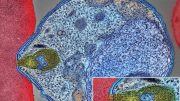
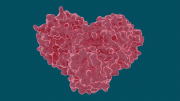

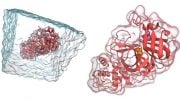
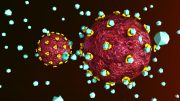
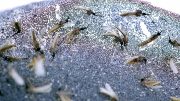
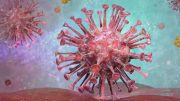
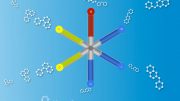
Be the first to comment on "Yale Study Shows HIV Protease Inhibitors Also Offer Protection Against Malaria"